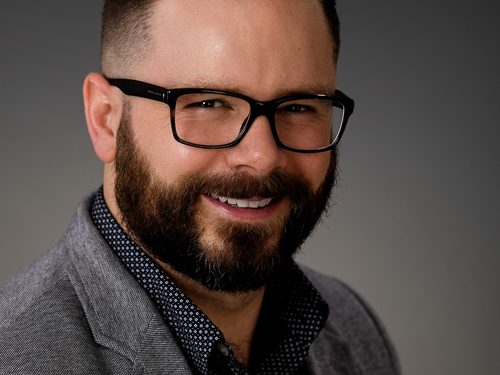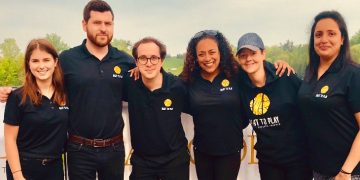Chris Baylis: Secrets of sponsorships
Cause sponsorship expert, Chris Baylis, launched the Sponsorship Collective to change the way charities and causes think about corporate sponsorship. He shares his story of starting his business, sponsorship secrets and tips for killing it on your first day of work.
When did you know you wanted to work in social impact?
Early on in my career, right out of University, I worked in corporate sales and part of my work included a sponsorship budget. Part of our strategy included charity and association events in order to connect with our target audience.
The more time I spent working with our sponsorship properties, the more I realized that there was something missing for me in the private sector. After a few years, I quit my job and started volunteering in the cause sponsorship space…and the rest is history.
What inspired you to start The Sponsorship Collective?
The Sponsorship Collective was actually born as a blog where I shared best practices and frustrations with the cause sponsorship and cause marketing space. I was looking for an outlet as well as a place to help charities and nonprofits understand the cause sponsorship space. Traffic to my site spiked, doubling every month from all over Canada, the US, Europe and Australia.
People then started reaching out, asking to hire me to help them with their projects and so, The Sponsorship Collective Inc. (the consulting firm) was born. We went from one person’s blog to a team of five today- working with clients all over Canada and the US.
What has been the greatest challenge you have had to overcome to pursue your social impact dreams?
The biggest challenge, without question, is the false (and highly damaging) belief that companies give to charities based on their cause or mission. That being a “good cause” is all you need to connect with corporate prospects. No charity will admit to holding this belief, but when you look at their sponsorship sales material, this belief is rampant.
Overcoming this false belief is the one thing standing in the way of our dreams, not because we hold this belief but because our clients do. Our mission is for our clients (and all charities), to have a spot at the marketing table and to be seen as a legitimate marketing opportunity for companies. Until this belief is corrected, we can’t achieve our mission.
What advice would you give to a nonprofit sponsorship employee on her first day of work?
Throw out your case for support, your sponsorship deck and your sales collateral (or at least lock it in your desk). Then pick up the phone and call your current sponsors and your prospective sponsors, sit down with them and get to know their goals. Who is their target audience, what actions do they want them to take, how can you help them deliver and measure ROI on their investment.
Stop trying to sell companies sponsorship, stop trying to convince them that you are a good cause and instead be a good partner and help your prospects and current sponsors reach their goals.
Rapid Fire Career Advice:
I wish I knew in my 20’s…..
That it’s OK to explore and try different career paths and jobs. I think young people today feel this freedom, but I didn’t when I was in my 20s! Take time to explore your interests and try new things- the experience of trying new things will serve you well.
I wish I knew in my 30’s….
While I don’t have long left in my 30s (sigh), I can say that I wish I spent more time and energy on personal and professional development. There is no greater asset than your own mind and your own skill set and I wish I realized this earlier.
Want more curated content delivered straight to your inbox?






No Comment